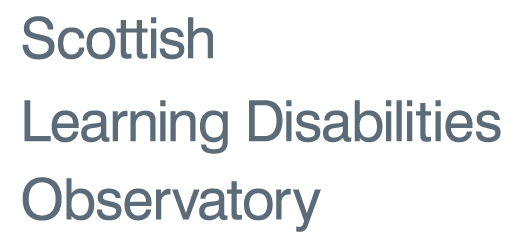Scotland: Other topics
Scotland's population size is 5,295,403
-
Choose
- Learning disabilities
- Autism
People with learning disabilities, and people with autism, are not homogeneous groups, and they intersect with all other identity groups across Scotland.
Scotland is an increasingly diverse nation. For example, whilst Scotland is overwhelmingly white, the number of minority ethnic communities has nearly doubled between 2001 and 2011. There has been very little focus on the ways in which people with learning disabilities and people with autism have multiple intersecting identities in relation to ethnicity, sexuality, gender, class, religion, and other identities.
In order to fully understand what it is like to be a person with learning disabilities and/or autism in Scotland, we need to explore the ways in which they intersect with other identities. For more information about equality and rights policies go to our policy pages.
Country of birth
| All People | People known to have autism | |||
|---|---|---|---|---|
| Total | % | Total | % | |
| United Kingdom | 4,926,119 | 93.0% | 30,689 | 96.8% |
| Europe: Other | 172,243 | 3.3% | 478 | 1.5% |
| Africa | 46,742 | 0.9% | 127 | 0.4% |
| Middle East and Asia | 104,530 | 2.0% | 188 | 0.6% |
| Americas and Caribbean | 33,353 | 0.6% | 176 | 0.6% |
| Other countries | 12,416 | 0.2% | 54 | 0.2% |
| Total | 5,295,403 | 100.0% | 31,712 | 100.0% |
Country of birth
Country of birth by gender
Ethnicity
| All People | People known to have autism | |||
|---|---|---|---|---|
| Total | % | Total | % | |
| White: Scottish | 4,417,968 | 83.9% | 27,710 | 87.4% |
| White: Other | 635,702 | 12.1% | 3,027 | 9.5% |
| Mixed ethnic groups | 19,592 | 0.4% | 223 | 0.7% |
| Asian | 140,145 | 2.7% | 533 | 1.7% |
| African | 29,518 | 0.6% | 120 | 0.4% |
| Caribbean or Black | 6,499 | 0.1% | 41 | 0.1% |
| Other ethnic groups | 14,267 | 0.3% | 58 | 0.2% |
| Total | 5,295,403 | 100.0% | 31,712 | 100.0% |
Ethnicity
Language spoken at home
| All People | People known to have autism | |||
|---|---|---|---|---|
| Total | % | Total | % | |
| English only | 4,740,547 | 92.6% | 28,843 | 92.4% |
| Gaelic | 24,974 | 0.5% | 77 | 0.3% |
| Scots | 55,817 | 1.1% | 388 | 1.2% |
| British Sign Language | 12,533 | 0.2% | 468 | 1.5% |
| Polish | 54,186 | 1.1% | 103 | 0.3% |
| Other | 230,166 | 4.5% | 1,330 | 4.3% |
| Total | 5,118,223 | 100.0% | 31,209 | 100.0% |
Language used at home
Gaelic language skills
| All People | People known to have autism | |||
|---|---|---|---|---|
| Total | % | Total | % | |
| No skills in Gaelic | 5,031,167 | 98.3% | 30,748 | 98.5% |
| Understands, speaks, reads or writes Gaelic | 87,056 | 1.7% | 461 | 1.5% |
| Total | 5,118,223 | 100.0% | 31,209 | 100.0% |
Gaelic language skills
Religion
| All People | People known to have autism | |||
|---|---|---|---|---|
| Total | % | Total | % | |
| Church of Scotland | 1,717,871 | 32.4% | 7,106 | 22.4% |
| Roman Catholic | 841,053 | 15.9% | 4,345 | 13.7% |
| Other Christian | 291,275 | 5.5% | 1,726 | 5.4% |
| Buddhist | 12,795 | 0.2% | 63 | 0.2% |
| Hindu | 16,379 | 0.3% | 34 | 0.1% |
| Jewish | 5,887 | 0.1% | 49 | 0.2% |
| Muslim | 76,737 | 1.5% | 357 | 1.1% |
| Sikh | 9,055 | 0.2% | 22 | 0.1% |
| Other religion | 15,196 | 0.3% | 176 | 0.6% |
| No religion | 1,941,116 | 36.7% | 15,324 | 48.3% |
| Religion not stated | 368,039 | 7.0% | 2,510 | 7.9% |
| Total | 5,295,403 | 100.0% | 31,712 | 100.0% |
Religion
Religion by age and gender
Summary information
96.8% of people known to have autism were born in the UK, compared to 93.0% of all people
-
1.5% of people known to have autism were born in other European countries, compared to 3.3% of all people
-
84.6% of people known to have autism are white and Scottish, compared with 82.8% of all people
-
92.4% of people known to have autism speak only English at home, compared with 92.6% of all people
-
48.3% of people known to have autism have no religion, compared to 36.7% of all people
View other information
Explore
Choose People with learning disabilities data or People with Autism data
You may also choose topic or area
